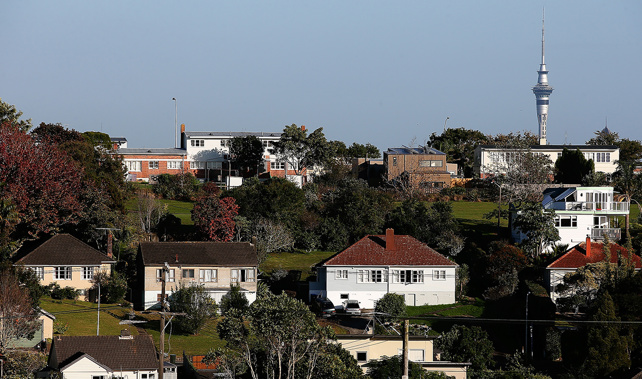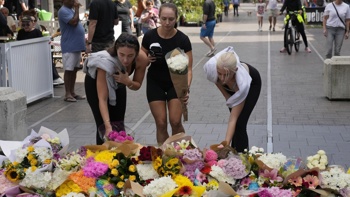
UPDATED 7.22pm: The Auckland Council has voted 13-8 not to stick with proposed housing density changes to thousands of homes in Auckland.
An alternative motion to withdraw the proposed changes from the Unitary Plan process if being debated but expected to pass.
More than 150 people turned out for the controversial Auckland Council meeting at the Auckland Town Hall today.
Members of the public crammed into the council chamber and an area was set up for an overflow.
Mayor Len Brown has signalled it will be a long and intense debate, saying: "We Aucklanders love to have a good bunfight."
The extraordinary meeting has been called to discuss the council's latest position on a proposal to rezone about 28,000 properties for more intensive development.
The proposed 'out of zone' changes mean residents did not ask for them in the proposed plan, and there is no formal right of reply.
A majority of councillors want to withdraw the council's latest changes, which have caused a public uproar in many of the affected suburbs.
The eastern suburbs of St Heliers, Kohimarama, Orakei and Glendowie are most affected. Other affected areas are Blockhouse Bay, Westmere and Takapuna.
After regulatory services director Penny Pirrit explains the Unitary Plan process, members of the public and Local Board chairs will address the meeting.
The meeting is considered an officers' report which recommends sticking with the higher density position. It is unclear if Mr Brown will allow councillors to vote on whether to withdraw or stick with the council's latest position.
Two members of the council's youth advisory panel spoke on behalf of young people and support for the proposed changes.
Deputy Chair Alex Johnston supported the urgent needs to provide more housing choices so that young people can have equal opportunity to other generations to be connected and have a chance to thrive in Auckland, same access to employment, study areas and good transport.
"The Unitary Plan is the tool to do this," he said.
Another member, social worker Flora Apulu, said young people were homeless, have nowhere to stay and no support from their family to live in affordable housing.
The Unitary Plan, she said, needs to put the needs of young people first.
Richard Burton, a spokesman for the community group 2040 said the meeting had nothing to do with the merits of intensification but the lack of a democratic process allowing public participation in the out of scope zoning.
He said a fundamental principle of the Unitary Plan process was participation, reinforced by the head of independent hearings process, Judge David Kirkpatrick, in 2014.
Mr Burton said the judge issued a note stating a review of case law identified two fundamental principles, one of which said the "court cannot permit a planing instrument to be appreciable amended without real opportunity for participation by those potentially affected."
Said Mr Burton: "Instead, the process that the council has adopted out of scope for changes provides no opportunity for participation, no ability to lodge submissions and no right to prevent evidence at the hearing."
Mr Burton said the issue was not about the merits of intensification.
"This is about the council's abuse of the consultative process by proposing tens of thousands of out of scope zoning changes," he said.
Don Stock, chairman of the Mission Bay-Kohimarama Residents Association, said the proposed changes were most severe in the eastern suburbs affecting about 40 per cent of out of scope changes.
In Mission Bay 80 per cent of properties were affected, 80 per cent in Glendowie and 60 per cent in Orakei. The issue, he said, was about the process.
"The point is there are going to be very, very large numbers of people who are going to have their lives changed for decades to come and they have been excluded from any consultation in the process,' he said.
"This is not tidying up loose ends. This is a big deal. This is an opportunity for entire suburbs to have their character changed. At the moment they are suburban character and if future they will be zoned so they will be three-storey and that most likely means apartments," Mr Stock said.
Dr Sudhvir Singh, of Generation Zero, said the quarter-acre dream is gone. Young people were prepared to compromise by downsizing to live in smaller dwellings, but would like to live close to where they study and work.
"That is why it is so essential that the Unitary Plan provides the capacity for mixed housing in the inner suburbs of Auckland." Dr Singh received shouts of 'rubbish' by suggesting the council was pulling the ladder for the chance of young people to live in the city.
Take your Radio, Podcasts and Music with you









